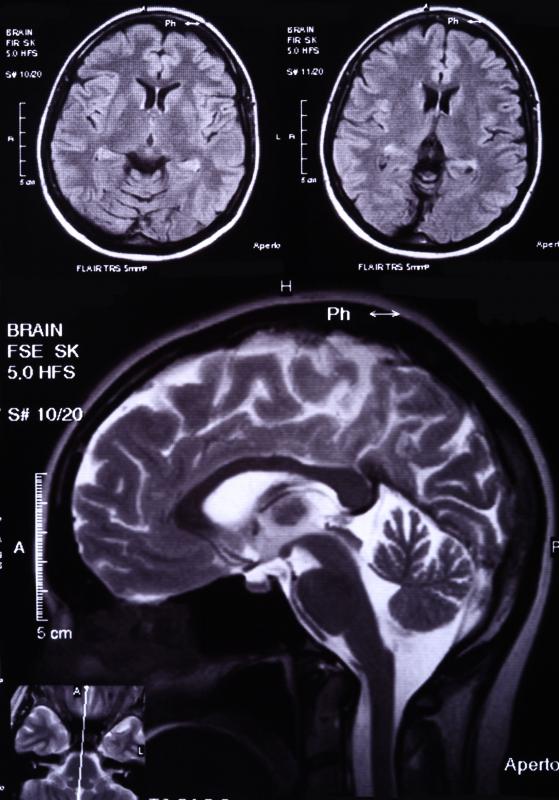At WiseGEEK, we're committed to delivering accurate, trustworthy information. Our expert-authored content is rigorously fact-checked and sourced from credible authorities. Discover how we uphold the highest standards in providing you with reliable knowledge.
What Are the Symptoms of Glioblastoma?
The symptoms of glioblastoma vary greatly from patient to patient, because the cancer can affect different areas of the brain. One of the most common symptoms is memory loss, although a constant headache and seizures also are frequently seen in patients suffering from the disease. People with glioblastoma also often suffer from changes in personality, confusion and speech difficulty.
Glioblastoma is one of the most aggressive types of brain cancer. It also is among the most common, although it is thought only to affect around one in every 50,000 people. Symptoms of glioblastoma can be difficult to spot, because the symptoms vary among patients depending on the tumor's location and its properties. Some patients suffer from symptoms relatively quickly, while other tumors can grow rather large before any symptoms of glioblastoma are noticed.

One of the most common symptoms of glioblastoma is a reduction in the patient's memory abilities. This is because the tumor often affects the brain's frontal and temporal lobes, which are important for memory. As the tumor progresses, the memory problems may become worse, although this depends on the exact part of the brain that is affected by the cancer.

There are a variety of other common symptoms of glioblastoma. These can include seizures, headaches, paralysis and nausea. The tumor is often capable of causing symptoms that appear to affect parts of the body aside from the brain. It’s possible, for example, for the cancer to cause a loss of hearing or weakness in certain parts of the body. Other symptoms can include coordination problems and vision changes.

A person suffering from this disease also may undergo changes in personality. These can be hard to spot initially but, along with other symptoms, are a sign that something is affecting the brain. Personality changes can include rapid changes in mood, emotional difficulties and sluggishness.
The symptoms of glioblastoma can often be confused with other diseases and medical conditions. For this reason, it’s important for a doctor to diagnose the cancer. The sooner the condition is diagnosed correctly, the more effective treatment is likely to be, though the prognosis is generally very poor. Diagnosis is usually achieved through the use of imaging techniques, such as magnetic resonance imaging (MRI) scans, although the appearance of the tumor is not always conclusive. Other problems in the brain may appear similar on an MRI, which is why a piece of the suspected tissue must be removed and examined for a conclusive diagnosis.
AS FEATURED ON:
AS FEATURED ON:















Discuss this Article
Post your comments